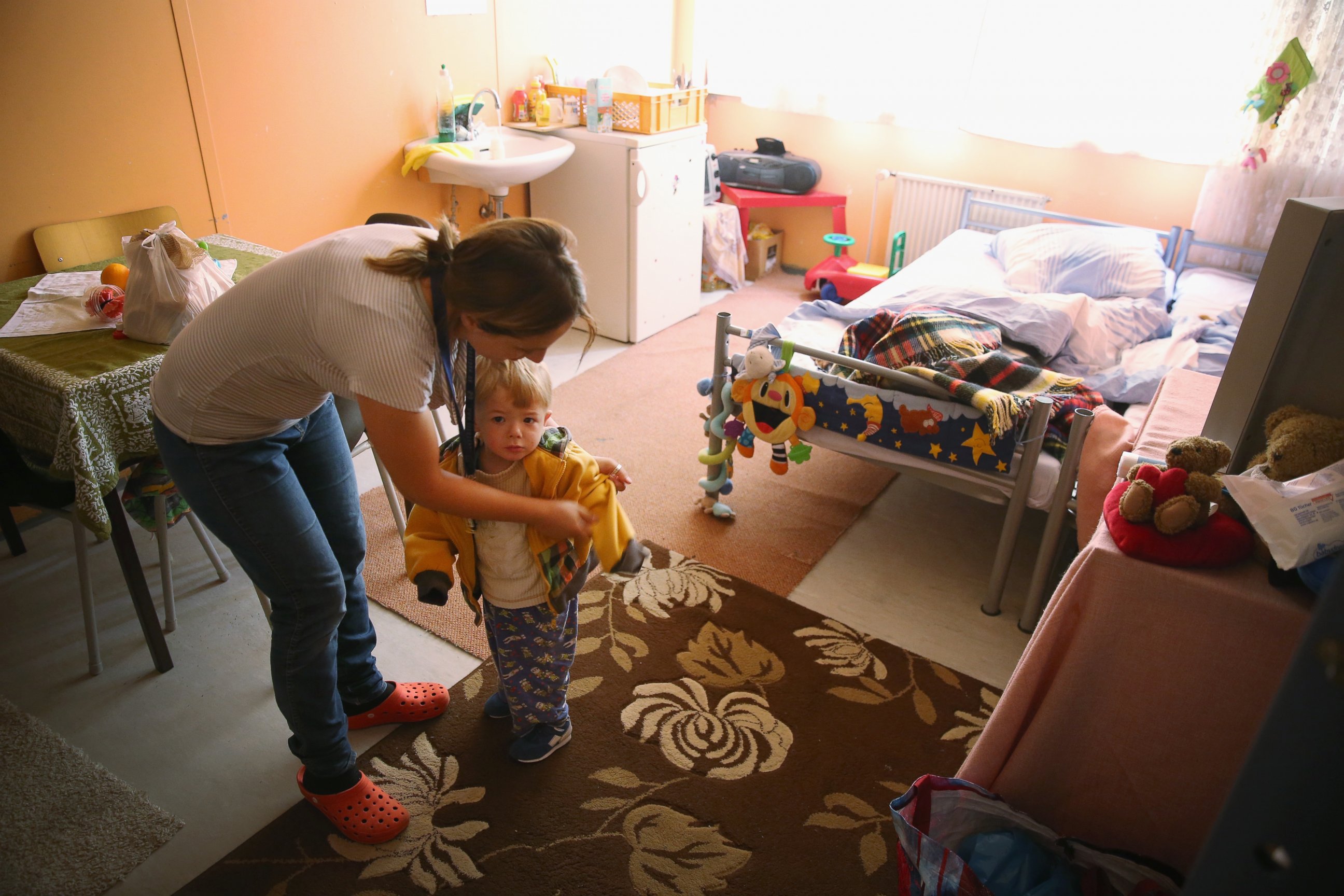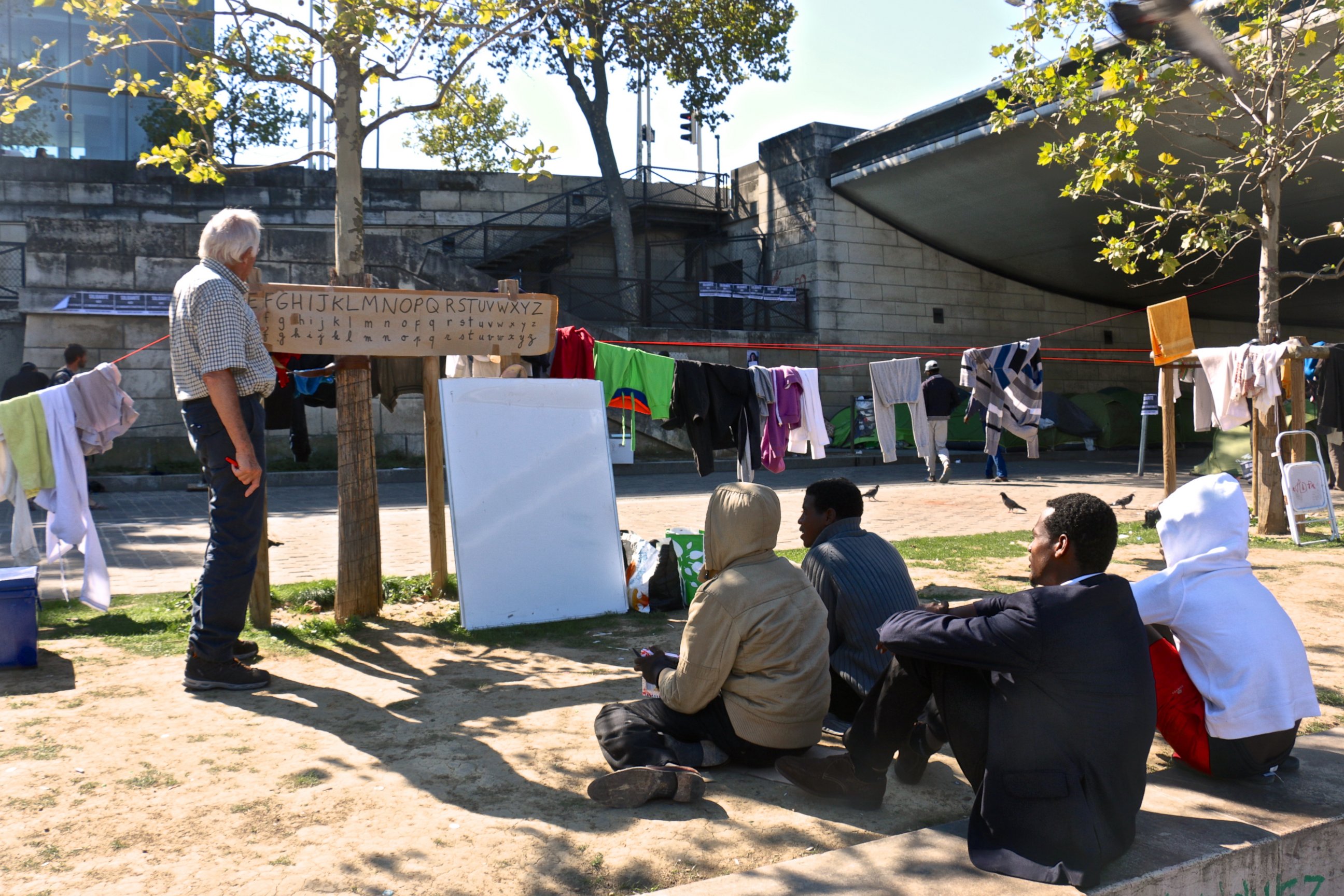Winning Asylum Can Be as Grueling as the Journey for Refugees
The long-term prospects are an open question for migrants who survive the trip.
LONDON— -- More than 350,000 refugees and migrants, a majority of whom are Syrians, along with Afghans and Eritreans, have sailed across the Mediterranean to reach European shores since January.
While the perilous journey has been widely documented in recent weeks, left unanswered are questions regarding the long-term prospects of their seeking asylum in Europe.
In accordance with European Union law, asylum seekers have a right to food, first aid and shelter in a reception center, but the longer term outcome will largely depend on whether host countries -- mainly Germany, Sweden, Italy, France and the United Kingdom -- register them as refugees.
After the initial registration, refugees and migrants are sent to receptions centers in their country of arrival, where they will often stay for weeks or even months before people who are granted asylum are allocated permanent housing.
Officially, refugees should be given practical information about the country in which they are living, a health check, a cash allowance and language classes. They also should be granted the right to work within a couple of months of arrival and the option of applying for permanent residence once they have the necessary language skills.
In many E.U. countries, free education is available to all, and in some countries, like in France, medical and hospital expenses for refugees are covered from their temporary-stay admission.
But such benefits will be allocated to a relatively small proportion of people who have been arriving to Europe in recent weeks. A majority are at risk of being in a legal limbo, the United Nations warns.
"UNHCR is concerned that the combination of different, individual measures might create a situation where large numbers of refugees seeking in Europe the protection they are entitled to receive in line with international law, will find themselves moving around in legal limbo,” the United Nations High Commissioner for Refugees (UNHCR) said in a recent statement.

Many are already in limbo, notably in Greece, Italy and France. In Greece, for example, the UNHCR says that limited infrastructure providing less than 2,000 reception places has meant inadequate reception conditions for new arrivals.
In Paris, hundreds have been camping in horrid conditions in the streets or under bridges, in stark contrast with people who were sent by bus from Germany last week and have already been given temporary housing in the suburbs of the capital.
Central to this issue is the difficulty of determining who is a refugee.
“Sometimes the decision is relatively straightforward, and sometimes it is an extremely difficult call to make,” the UNHCR said in a written statement.
“There are asylum seekers without documents who are refugees, and there are asylum seekers with valid travel documents who are most definitely not. There are people who articulate a false story well, and people who articulate a true story badly,” the UNCHR added

For European countries, the budgetary question is also central.
• In Germany, the government recently stated that state and local authorities will receive $3 billion to help house the 800,000 people expected to arrive this year, and another $3 billion will be allocated to pay benefits for the new arrivals.
• Sweden said it will make $215 million available to local municipalities in 2016 for the new influx of migrants and refugees.
• French Interior Minister recently promised city and town governments $1,200 for each new housing spot they provide to refugees from now until 2017.
• In Britain, Chancellor George Osborne said that housing and living costs for refugees would be met for the first 12 months of their stay in Britain and come from the aid budget.
• Greece recently requested $3.10 million in emergency aid to set up a reception center on the Aegean islands run by UNHCR.
• Austria received nearly $6 million in emergency assistance from the E.U. to increase its reception capacity and administrative capacity to deal with increased asylum claims.
• Hungary also received $4.5 million in emergency assistance from the E.U. to improve the infrastructure of existing reception facilities as well as develop new ones, to purchase further equipment and supplies for reception centers, as well as to expand human resources and increase transport capacities in the country.
The E.U. Commission said it would double its emergency funds for frontline member states dealing with growing numbers of refugees to $56 million for this year and that it would give Greece $536 million and Italy $633 million over the next six years. That was last spring, and the needs are unlikely to wane any time soon.




